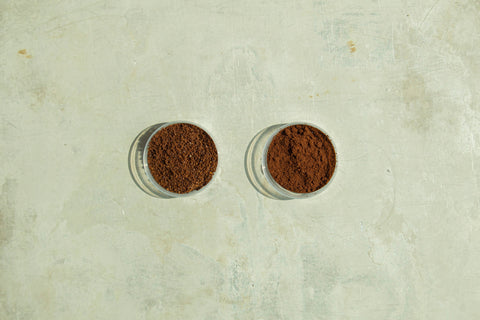This section is dedicated to the in-depth study of the scientific aspects of coffee, highlighting the complex processes that transform each bean into a unique sensory experience. From soil and terroir analysis to innovation in fermentation and mastery of roasting techniques, we explore the impact of each step on the quality and aromatic profile of coffee.
By combining scientific rigor and expertise, we aim to enrich the understanding of this universe, celebrating the alliance of know-how and innovation that defines exceptional coffees.
coffee science

It's a psychoactive stimulant that acts at the cellular level, altering our neurochemistry, influencing our performance, and, in high doses, can disrupt our nervous system. A dive into the biochemical intricacies of this substance that billions of humans consume every day.

Often underestimated, grind is a key parameter in coffee extraction. It acts as a sensory and chemical lever, influencing the taste, aroma, and texture of each cup. Too fine or too coarse, it can completely transform your experience. Understanding grind is mastering the balance between science and pleasure.

The bitterness of coffee is intriguing and divisive: some shun it, others adore it. However, it doesn't come solely from caffeine. It stems primarily from roasting, chlorogenic acids, and extraction techniques.

The Chemex is more than just an extraction tool: it’s a sensory approach to coffee, a moment where precision and contemplation meet.

Water plays a crucial role in espresso preparation. Avoid distilled water, as it disrupts flavor extraction and damages machines. Opt for spring or filtered water to ensure flavorful coffee and preserve your machine. Discover our selection of coffees for perfect extraction!

Water temperature is a crucial factor in achieving optimal coffee extraction. It directly influences the flavour balance, body, and acidity of your cup.

The use and choice of filter holder will have a major impact on the preparation of beverages and their consistency. By coaching teams of baristas when starting coffeeshops, I realized that it was important to reduce the variables as much as possible.
let's have coffee!
lattitude : 48.104
longitude : - 66.129
200 route du quai,
carleton-sur-mer, qc, canada
G0C 1J0
